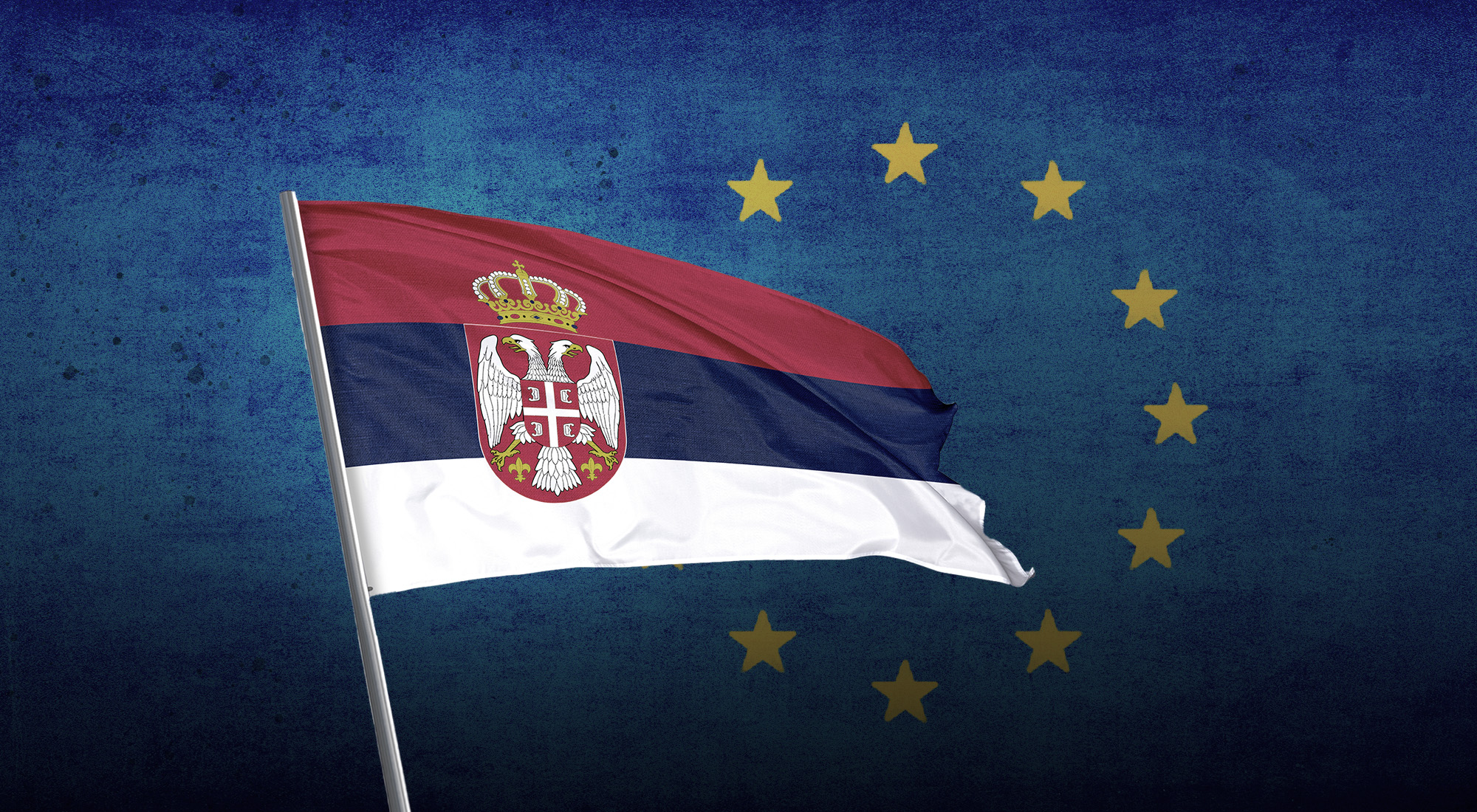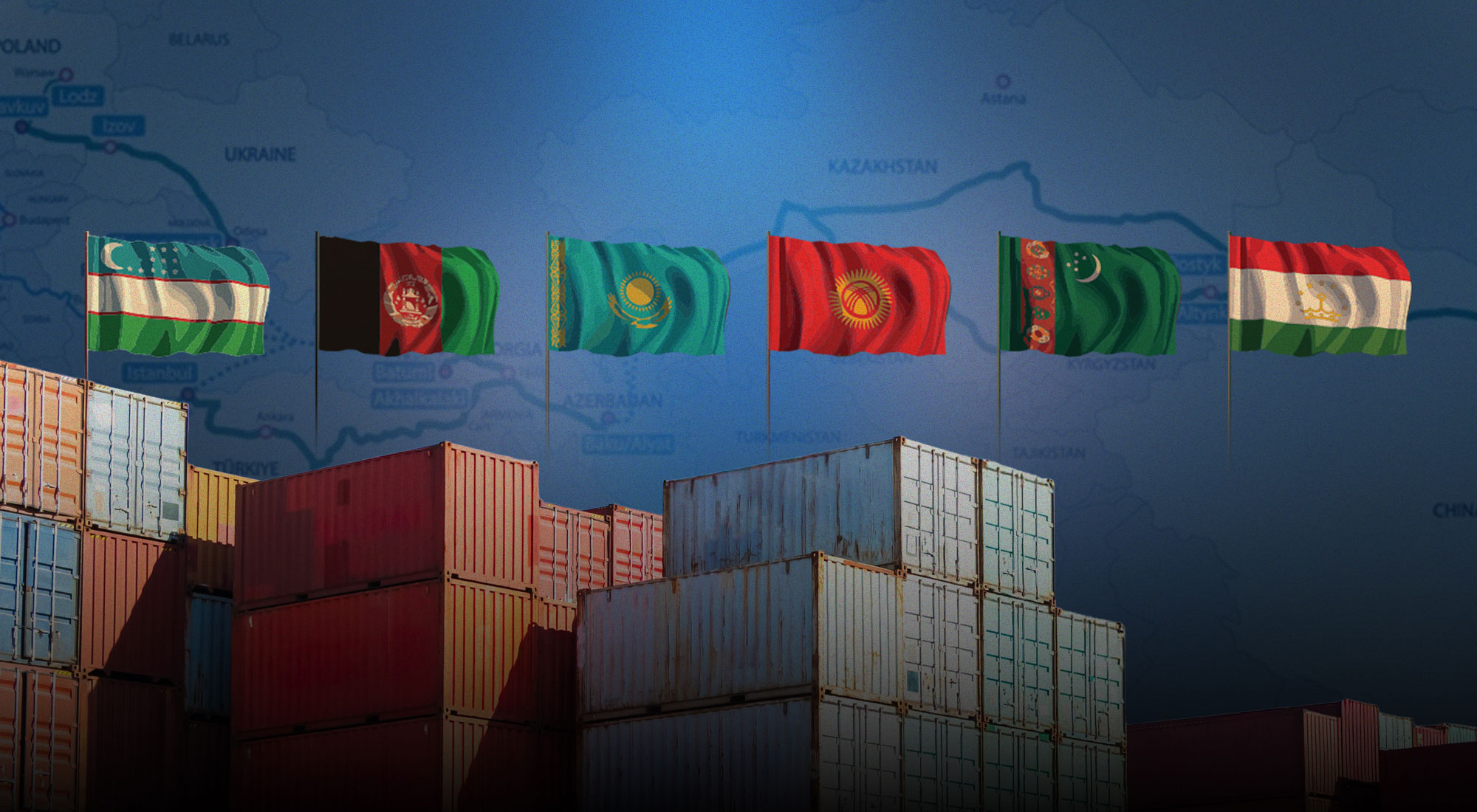Serbia’s geopolitical position in an increasingly multipolar world is interesting. Having European Union (EU) candidate status since 2012, Serbia maintains close ties to all major Western powers. Serbia also has a special relationship with Russia rooted in history, religion, geopolitics, energy, and other domains, while Belgrade’s ties with China continually strengthen. Known as the “Janus of the Balkans”, President Aleksandar Vučić has set Serbia on a “multi-vector diplomatic course.”[1]
As Serbians often note, their country is “the East of the West” and “the West of the East.”[2] Carefully balancing Serbia’s foreign policy interests vis-à-vis Western and non-Western powers, the leadership in Belgrade has focused on enhancing the Balkan country’s geopolitical flexibility. To their credit, Serbian officials have managed to operate with maneuverability amid global crises. Using its leverage on the international stage, Serbia has made itself important to many powers across multiple regions, giving the U.S., EU, Russia, China, Türkiye, Israel, Arab states, and Iran high stakes in their relationships with Belgrade.[3] Vučić’s foreign policy strategy is largely geared toward maximizing Serbia’s foreign policy independence in a world beset by geopolitical instability and chaotic conflicts.[4] Rooted in the era of Josip Broz Tito and Yugoslavia’s leadership role in the Non-Aligned Movement, this approach rests on a doctrine of providing all major stakeholders in Serbia with something valuable while never giving everything to any one single foreign actor.[5]
Throughout 2024, Serbia has made moves that highlight its ability to continue striking this delicate balancing act. Belgrade signing a fighter jet deal with France in August and a lithium deal with the EU during the previous month both spoke to the Vučić government’s “multi-vector” diplomacy and skillful navigation of multipolarity. These moves have led to some optimism in the U.S. and EU about Belgrade moving even closer to the West and away from Moscow and Beijing.
In reality, Serbia is making small and gradual strategic moves toward NATO and EU members. However, even as these developments are poised to strengthen Serbia’s relationships with the West in important ways, it is doubtful that either the fighter jet or lithium deal will fundamentally reorient Serbia’s geostrategic position on the world stage. As much as Western policymakers and think tankers in the Atlanticist camp would like to pull Belgrade away from Moscow and Beijing’s spheres of influence, the Kosovo file (Serbia’s top foreign policy priority) and other issues will limit the extent to which the West can weaken Serbia’s relationships with these two permanent UN Security Council members, which oppose recognition of Kosovo’s independence.
Fighter Jet Deal
On 29 August, Vučić announced a US$3 billion warplane deal between his country and France.[6] Under this deal, Belgrade will purchase 12 Rafale multi-purpose fighter jets as part of a move that has led to much discussion about Belgrade distancing itself from Moscow and becoming more firmly embedded within the West’s security orbit. Vučić announced this deal during a joint press conference with his French counterpart, Emmanuel Macron, who hailed the deal as “historic and important.” The deal highlights Belgrade’s “strategic courage,” according to Macron, who went on to say that the EU needs a “strong democratic Serbia at its side and Serbia needs a strong, sovereign Europe to defend its interests.” The French leader also declared, “Serbia’s place is in the EU, and it has a role to play to be an example for all the region.”[7] This constituted a huge win for France’s leadership. Not only did this deal secure Paris a new customer in the defense industry, but it also enabled Macron to demonstrate before his domestic constituents that France is playing a leadership role in Europe by engaging the Western Balkans.[8]
It is necessary to understand that one state buying military planes from another is about far more than just the planes themselves. Spare parts, weapons systems, and maintenance services, besides even a new air warfare doctrine, are all part of the equation. In other words, Belgrade is set to become increasingly reliant on Paris throughout the upcoming years, if not decades. Any French-Serbian rift in the future could render the Serbian Air Force somewhat useless.[9]
Yet, Serbia’s move closer to the West in the domains of defense and security was already in motion before this fighter jet deal with Paris, and it would have probably continued even without it. Nonetheless, this development making the Serbian Air Force heavily reliant on France marks an important step in Serbia’s growing alignment with NATO, even if imagining Belgrade obtaining official membership in the transatlantic alliance is difficult. This might come at the expense of Serbia’s partnerships with Russia and China, at least to a limited extent.[10]
At this stage, geopolitical realities are making Serbia’s military cooperation with Russia unviable. Even before Russia’s “special military operation” in Ukraine began in February 2022, policymakers in Belgrade were not considering the idea of Serbia purchasing Russian fighter jets. At one time, Serbia saw China as a strong candidate, but Belgrade ultimately decided to cooperate militarily with the West. This was partially due to concerns about Chinese technology representing threats to Western interests. Today, Serbians who favor military cooperation with Russia and China, as opposed to the West, cease to hold office in military and defense-related institutions.[11]
However, there is not necessarily any reason to conclude that Serbia moving closer to France and the rest of the West in the domain of military cooperation will necessarily fuel significant friction between elites in Belgrade and Moscow. As one Serbian analyst noted, Russia’s leadership tends to “turn a blind eye” to aspects of Belgrade’s foreign policy that are in alignment with the West’s interests.[12] The sale of Serbian arms to Ukraine via third countries is a case in point.[13]
In a wider context, for years Serbian foreign policy has oscillated between the West and Russia with this fighter jet deal with Paris signaling a continuation of this balanced approach. Western governments realize that Belgrade maintains this strategy for navigating tensions between NATO and Moscow, and France is clearly capitalizing on such dynamics to its own economic benefit while leaving Paris’ Western allies with the sense that Macron’s government is, at least to some degree, pulling Serbia away from Russia. In the process, it will likely be possible for Belgrade to convince the West that there should be less diplomatic pressure on Serbia over its refusal to implement sanctions on Moscow in the wake of Russia’s “special military operation” in Ukraine. As one Italian analyst who specializes in the Western Balkans explained, it’s a “win-win situation.”[14]
Serbia’s Lithium
On 19 July, German Chancellor Olaf Scholz, European Commission Vice-President Maroš Šefčovič, the President of the European Bank for Reconstruction and Development (EBRD) Odile Renaud-Basso, senior executives from Rio Tino, Mercedes, Stellantis, and several vehicle battery manufacturers paid a visit to the Serbian capital.[15] While in Belgrade, they signed an EU-Serbia MoU to establish a raw materials partnership and a value chain for the manufacture of electric vehicles (EVs) and batteries.
Serbia’s Jadar Valley is home to one of Europe’s largest lithium deposits, with enough for approximately 1mn EV batteries a year. Therefore, this MoU is significant for a host of reasons. With Germany and other EU members needing lithium for their green transitions, these Western countries have been seeking to reduce their reliance on China for this resource. With China dominating the global lithium market, EU members have major incentives to develop these resources in Europe, which would serve to bolster their positions in the global green energy race while preventing the supply chain from relying on China.[16]
Although there are other sources of lithium in Europe, EU members are keen to extract it from parts of Europe outside their bloc largely due to the environmental impact, which is essentially a “not in my backyard” stance by Western Europeans. Widespread concerns in Serbia about lithium exploitation in the country have led to large-scale protests against the Belgrade government’s dealmaking with the EU on lithium. Growing resentment toward the West as well as the Vučić government has also resulted. Nonetheless, by turning down a Chinese request for access to Serbia’s lithium in the eastern part of the country while deciding to sign a contract with Rio Tino for exploiting lithium in western Serbia, Vučić has signaled his determination to further integrate Serbia’s economy with the West.[17]
Mindful of the EU’s Green Deal and transition toward renewable energy, it is reasonable to conclude that lithium deposits in Serbia have the potential to play an essential role in the European energy transition, with France and Germany taking the lead in their push for EVs. In the process of Serbia’s lithium resources growing in importance to the West, Belgrade could come closer to the West through infrastructure investments, economic incentives, and increased political alignment with Western European powers.
The “lithium card” enhances Belgrade’s influence vis-à-vis Western European states while also decreasing EU pressure on the Vučić government regarding questions about Serbian democracy, rule of law, human rights, and civil liberties.[18] The Serbian leadership is hopeful that France, Germany, and other Western countries will be “pragmatic” and back off from pressuring Belgrade over Serbia’s domestic affairs given the West’s interests in the country’s lithium reserves.[19]
Nonetheless, given that most Serbian citizens are, on environmental grounds, opposed to Western corporations extracting lithium in their country, how foreign interests in Serbia’s lithium will play out politically remains unclear. A critical question to raise is, how can the strong and politically diverse “lithium opposition” become an influential body or movement in Serbia that proves capable of changing the Balkan country’s political landscape? Additionally, if the mining goes through in Serbia, will there be a “lithium revolution” that can transform the Serbian economy? This comes down to questions about whether Serbia has strong enough institutions, measures to curb corruption, as well as enough experts and entrepreneurs to ensure that a “lithium industry ecosystem” can flourish.[20]
Perhaps with time, the answers will be clearer. But these questions must be considered when assessing the possibilities of Serbia’s lithium industry resulting in Belgrade coming into closer alignment with the West. Looking ahead, it is important to be mindful of how Rio Tino and other Western corporations’ potential exploitation of Serbia’s natural resource wealth could result in a backlash against the West. With many in the “lithium opposition” pointing to what they see as Western double standards and hypocrisy, rising anti-Western attitudes in Serbia are a possible outcome of Western companies’ activities in the Jadar Valley.
Serbia’s Perpetual EU Candidacy
Despite the deepening of Western interests in Serbia, the central European country is set to remain an EU candidate rather than become a formal member of the bloc throughout the foreseeable future. A host of issues such as the Kosovo file, Serbian-Russian relations, Belgrade’s ties with Republika Srpska, corruption, autocracy, democratic deficits, judicial independence, and rule-of-law concerns will probably continue to prevent Serbia’s ascension to the EU, despite the Balkan country’s progress when it comes to economic reforms.[21] Another factor is the extent to which Serbian society is divided on questions related to possible EU membership, with some segments of the population favoring further integration into the West while others oppose it.
The protracted Serbia-Kosovo dispute stands out as the main obstacle to Serbia joining the EU.[22] The bloc has emphasized how Serbia can’t obtain full-fledged membership unless and until Belgrade and Pristina’s dispute is resolved. With all Western-led efforts aimed at promoting greater dialogue between Serbia and Kosovo proving futile and no comprehensive agreement appearing anywhere on the horizon, the idea of Serbia’s accession moving forward is difficult to imagine.
Perhaps the second most significant factor complicating the prospects for Serbia’s accession to the EU is Belgrade’s partnership with Moscow.[23] By virtue of the deep ties between Serbia and Russia, which span across various domains such as geopolitics, energy, security, diplomacy, etc., the main actors in the EU will continue harboring grave concerns about the Vučić government’s relationship with the Kremlin, particularly regarding Belgrade’s refusal to join the West’s sanctions campaign against Russia amid the Ukraine conflict. As a bloc, the EU expects candidate countries to demonstrate their willingness and ability to align their foreign policy agendas with the West, which Serbia has not done on some important issues, especially pertaining to Russia.
It appears that the political will in the EU is not there to admit Serbia to the bloc. There is no consensus among EU members in favor of bringing Serbia into the EU, with “enlargement fatigue” remaining a major issue amid a day and age of rising populism in the post-Brexit period.[24] Although Montenegro may soon join the EU, it is probably safe to bet that the EU will take a far more cautious stance when it comes to Serbia and other Balkan candidates.
Moreover, in the event that lithium extraction in Serbia results in environmental catastrophes, as feared by many Serbian voices in the “lithium opposition”, the chances of the country entering the bloc would probably decrease even more mindful of Brussels’ ability to simply assert that the Belgrade government fails to meet EU environmental standards.
None of this is necessarily bad news for the leadership in Belgrade. To the contrary, Serbia’s perpetual candidacy to the EU best serves the Vučić government’s interests mindful of how this status quo favors Belgrade’s “swinging policy” between the West and East. As a candidate for the EU, Serbia will continue receiving Instrument for Pre-Accession Assistance funding and essential trade with the bloc while Belgrade maintains its unique partnership with Moscow.[25]
Even if obtaining full-fledged EU membership will probably remain a distant goal for Serbia, the Balkan country will continue its gradual integration into the economic and trade structures of the bloc. Today, EU-Serbia trade is substantial, with 60 percent of Serbia’s trade being with the bloc in 2023. Germany is the top trade partner in the world, followed by Italy, Hungary, and Romania.[26]
In sum, the vibrant economic relationships between the EU and Serbia are set to continue deepening, with both sides reaping benefits. However, given that a host of political and legal hurdles to Serbian ascension to the EU remain in place, the Central European country will probably stay an EU candidate for years to come without necessarily any significant headway toward formal entry into the bloc. Long-term, however, if some diplomatic breakthrough on the Kosovo file could be achieved or some form of a realignment of Belgrade’s foreign policy unfolds, Serbia’s journey toward EU membership might accelerate to some degree. Nonetheless, with governance and rule-of-law issues still insufficiently addressed, it will remain difficult to imagine Serbia becoming an EU member in the foreseeable future.
Endnotes
[1] Misha Glenny, “Serbia’s strongman ruler leans west with a lithium deal,” Financial Times, August 8, 2024, https://www.ft.com/content/91bf1365-daba-406d-86e8-15b595f485f3.
[2] Dragan Stavljanin, “Vucic’s Delicate Balancing Act,” Radio Free Europe/Radio Liberty, September 9, 2024, https://www.rferl.org/a/vucic-balancing-act-serbia-foreign-policy-russia-china-eu/33109901.html.
[3] Ibid.
[4] Misha Glenny, “Serbia’s strongman ruler leans west with a lithium deal,” Financial Times, August 8, 2024, https://www.ft.com/content/91bf1365-daba-406d-86e8-15b595f485f3.
[5] Stavljanin, “Vucic’s Delicate Balancing Act.”
[6] “France Serbia sign €2.7 billion Rafale fighter jet deal during Macron visit,” France 24, August 28, 2024, https://www.france24.com/en/live-news/20240829-fighter-jet-deal-at-centre-of-macron-s-serbia-trip.
[7] “Serbia makes a $3 billion deal to buy 12 French warplanes, in a shift away from Russia,” AP, August 30, 2024, https://apnews.com/article/france-macron-serbia-fighter-jets-rafale-f7b73c2ddf89b309f242795c2e91c1ca.
[8] Vuk Vuksanovic, Interview with the Author, September 15, 2024.
[9] Dejan Sajinovic, Interview with the Author, September 16, 2024.
[10] Ibid.
[11] Igor Novakovic, Interview with the Author, September 19, 2024.
[12] Nikola Mikovic, Interview with the Author, September 13, 2024.
[13] “Ukraine is a booming market for Balkan arms makers,” The Economist, September 19, 2024, https://www.economist.com/europe/2024/09/19/ukraine-is-a-booming-market-for-balkan-arms-makers.
[14] Giorgio Fruscione, Interview with the Author, September 19, 2024.
[15] “Germany’s Scholz Praises Lithium-Mining Deal With Serbia, Says Environment Will Be Protected,” Radio Free Europe/Radio Liberty, July 19, 2024, https://www.rferl.org/a/serbia-germany-lithium-mining-environment/33043393.html.
[16] Petar Milutinović, Interview with the Author, September 21, 2024.
[17] Glenny, “Serbia’s strongman ruler leans west with a lithium deal.”
[18] Dejan Sajinovic, Interview with the Author, September 16, 2024.
[19] Ibid.
[20] Ibid.
[21] Vladimir Trapara, Interview with the Author, September 16, 2024.
[22] Petar Milutinović, Interview with the Author, September 21, 2024.
[23] Ibid.
[24] Max Bergmann, Otto Svendsen, and Sissy Martinez, “The European Union’s Enlargement Conundrum,” CSIS, May 25, 2023, https://www.csis.org/analysis/european-unions-enlargement-conundrum.
[25] Giorgio Fruscione, Interview with the Author, September 19, 2024.
[26] EU in Serbia, “Main Trade Partners of Serbia in 2023,” https://europa.rs/trade/?lang=en.








